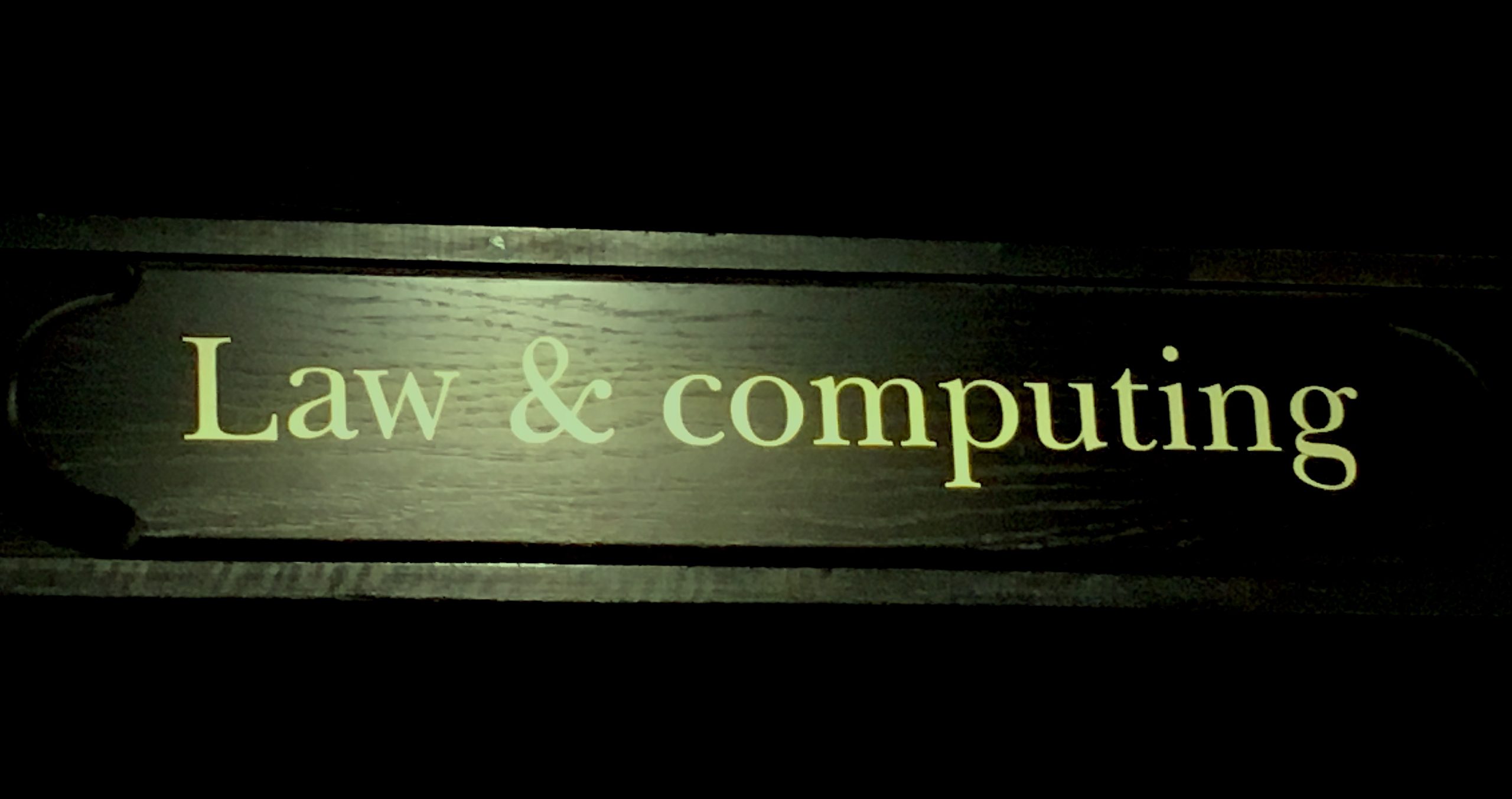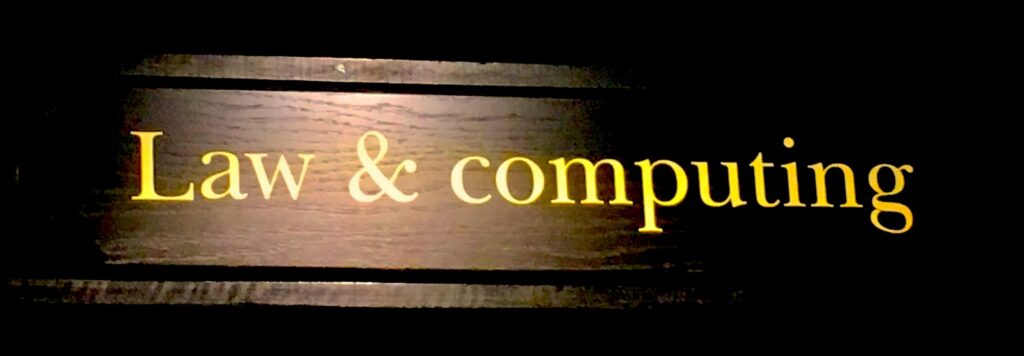As part of our series that explores the different facet of FinTech and explain what the single buzzwords mean, we obviously need to touch upon the fields that are extremely relevant to the compliance and legal officers and their daily life at financial institutions like RegTech and #LegalTech (aka LawTech).
Legal Technology is not a new concept though as technology has played an important part in the jobs of lawyers both in-house and at law firms. Two aspects though have created a movement that aims to change every angle of an industry: the first of the two is the rise of innovative solutions like artificial intelligence, machine learning, better data analytics or smart contracts and blockchain. The second is the unprecedented opportunity to break into a market that has generated in the US alone more than $250 billion in revenue, so no wonder clever start-ups are trying to get a piece of the action.
While the areas and solutions often overlap, we can categorise the different services roughly into 10 categories:
Practice Management Software
Practice Management Softwarefocuses on all activities for the day-to-day management of a legal practice like billing, accounting, payments or simply time management. Software in this field as been around for decades and it is the starting point for LegalTech solutions, but process automation, the use of cloud-services and software as a service have taken LegalTech to the next level.
Legal Marketplaces and Networks
It is an obvious solution to use the Internet to find the right lawyer wherever you are. However, it isn’t only about finding the right professional, start-ups also provide solutions where you can compare lawyers to find the most suitable one as well as making it easier to get legal advice or specific contracts and agreements through a few mouse clicks. In a digital world dominated by Facebook et al, there is naturally an apparent need for specialised networks for lawyers. Legal professionals can make referrals and share opportunities, help each other with legal and professional advice, and access tools and resources to help them do their jobs and jumpstart their careers. Talking about careers, this obviously includes staffing that goes beyond the traditional online and offline job boards. Examples include matchmaking between lawyers and clients with integrated billing.
Document Management
Assume you’ve been to a law firm because of a personal matter, let’s say a car accident, you bought a home or you were arguing with a client or business partner. One thing that must have struck you is how quickly lawyers pile up documents. Now multiply this with the folders for all current and past clients of a law firm. No matter if it is a single practice or a large law firm with dozens or hundreds of legal practitioners, all of them amass a lot of documents.
Somehow that needs to be managed and systems have evolved over time. Innovative solutions tackle the two major aspects of document management: firstly, organisation and location of documents. With cloud-based solutions pressure is lifted from internal IT management while data is readily accessible. Secondly, information: with the digitalisation of paper documents, everything can be stored more easily, but it also available at an instant a well as making amendments of documents and collaboration between different parties less complicated. AI-based solutions can improve the processes to find relevant data across the entire document stock of a firm as opposed to traditional search software.
Contract Management
Contract Management overlaps with Document Management but it refers to the specific case of managing any kind of agreement, including especially the exchange and negotiation of contracts between the different parties. Depending on the complexity of a legal agreement, the number of different versions of a document along the entire negotiation lifecycle can be astonishing and a good contract management software can be integrated into other applications like project management, cost calculations and administration, always evidencing and highlighting changes in an auditable and legally robust way.
E-Discovery
E-Discovery refers to processes that search, collect, store, analyse and exchange electronic data for evidence to be used in legal proceedings. Specific rules govern the use of such tools depending on the different jurisdictions. Electronically stored information (ESI) come sin many shapes and more importantly formats, from the usual suspects like Word docs and e-mails, but also from firm specific databases, basically any document that’s electronic, as you may have guessed. Given the complexity of the matter you would usually find lawyers that are specialists in the respective legal field and forensic specialists along IT professionals and record managers involved.

Legal Research
Legal Research is another traditional area, where technology has been employed for a long time to help lawyers with their job. It deals with any form of technology supported research for lawyers crawling through an ever increasing mountain of, for example, case law or any other form of legal data. Obviously, cost is a massive argument that can play in favour of start-ups. Using AI or machine learning to generate better results is also a key differentiator though.
Legal Services
Under Legal Services we combine basically two kinds of Legal Techs (though as ever so often it is difficult to draw a line): the ones that have transferred traditional legal services to the web and provide remote legal analysis and advice. This can happen through the interaction by email, over the phone, or video call where usually a qualified legal professional is involved. The second kind is where an aspect of automation takes place. Examples are contract generation, where a template has been generated by a lawyer that is amended by the specifics the customer adds. For instance, if you need a Contractor Agreement for an external contractor for your business, you add all the relevant details like identity of the parties, description of the services to be delivered, remuneration, term and so on, and in the end you get your finished contract ready to sign. Another example is automation of due diligence where the machine collates the relevant documents, streamlines unstructured data, and conducts an analysis. Yet another example would be notarisation tools that aim to provide consumers with tools to have documents certified or notarised online. The latter is a very interesting field for the application of blockchain technology, though it is still early days.
IP support
Intellectual Property support covers the whole range from the search for competing IP, help with the registration of patents, trademarks, copyrights and other IP rights, to the protection of an individual’s or a firm’s intellectual property. It also consists of solutions for IP asset management that manage the existing assets as well as assist with the development and monetization of IP portfolios, for instance, using artificial intelligence to discover opportunities
Financing
Anyone who has ever tried to take a case to court (and win it) or watched a legal court drama knows that it can be a lengthy and costly process. Companies have been providing funds especially in the US for a long time, as it can be a lucrative business, while other jurisdictions are more restrictive. The general idea though is to provide a plaintiff with the money they need to pay for legal costs and sometimes other costs like working capital or personal expenses. LegalTech tries to address for example through crowdfunding platforms or online marketplaces where investors can decide into which cases they want to put their money in exchange for a financial return if the plaintiff wins the case.
General LegalTech solutions
If you’ve kept counting you know that’s 9 categories and we promised you 10 that we use for the upcoming Planet Compliance Legal Tech Directory. General LegalTech solutions is the tenth as the above naturally isn’t a conclusive list of categories and possibly never can be since clever people continue to come up with great ideas how they can disrupt the legal industry. So we decided it would only be fair to add a final category that contains all those LegalTechs that cannot be squeezed into any of the other categories, though that doesn’t mean we won’t review and amend our model if necessary.
